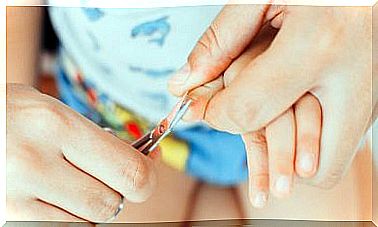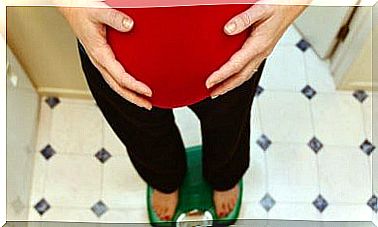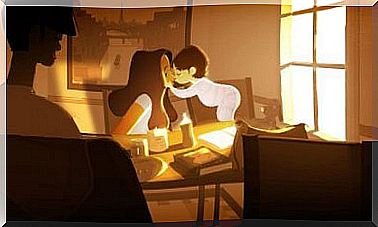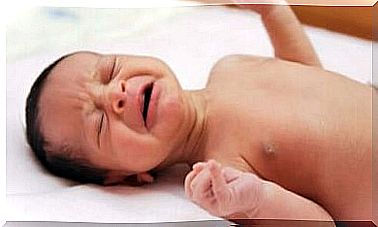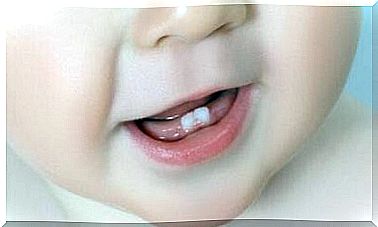Treatment Of Hiccups, Fever And Vomiting
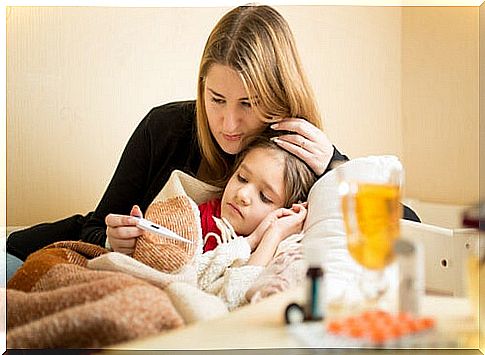
Hiccups, fever, and vomiting are some of the most common horrors that parents struggle with in the first few months of their child’s life. These conditions can appear sporadically over several years and are quite normal as they are the body’s reaction to something foreign.
Although hiccups, fever and vomiting no connection with each other, we want to talk about these conditions because they are the main cause for concerned parents in healthy children. These conditions must be monitored accordingly so that they do not harm the child later.
Unfortunately, hiccups, fever and vomiting often cannot be prevented.
A child gets a fever if it’s from a virus or from bacteria the source of which is normally unknown. Vomiting is a reaction to a substance that is already present in the body. And hiccups are involuntary movements that put pressure on the diaphragm and can begin for no apparent reason.
In the following we learn how to deal with hiccups, fever, or vomiting.
A dangerous enemy: child fever
While it’s not a disease in and of itself, a fever is a dangerous sign that something more serious is going on in the body. It usually occurs in young children when a pathogen enters the body.
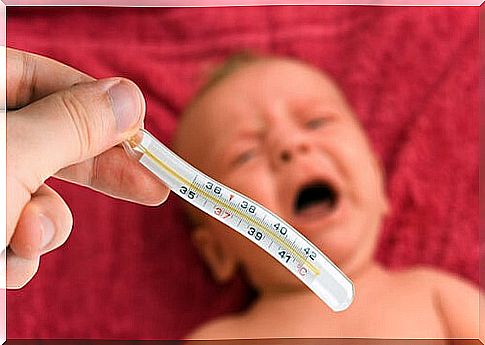
Fever is always a concern. Only when it is persistent and when the child’s temperature rises above 37 degrees Celsius do we speak of something more serious.
In general, a fever is caused by very common viral infections. This is not a cause for concern and usually does not require treatment.
What should be done in case of a fever?
Depending on the type of fever, the child may feel more or less bad. To determine the degree of severity , we need to observe what other types of complaints the child shows.
It is normal that fever above 38 ° C disappears within 32 hours. If it persists for more than two days, a specialist should be consulted.
If the child has a fever, you should follow these recommendations:
- The body temperature with Home remedies such as fanning, undressing and dampening.
- Monitor the temperature continuously.
- Give minimum dose of paracetamol according to medical instructions.
- Some mothers bathe their children to lower their temperature. This is only recommended if you are using warm or room temperature water, never ice cold water.
- Give plenty of fluids to drink.
Vomiting in children
Although hiccups, fever, and vomiting generally indicate an illness, vomiting is usually a sign that a pathogen is present in the body. Even if directly the stomach is affected , vomiting is a sign that a viral or bacterial infection is present.
Parents are particularly worried about very young children. After all, vomiting can be a symptom of a more serious illness and the little ones just can’t express themselves properly. In addition, vomiting can cause the child to choke.
Although not all causes of vomiting are serious, it is important to distinguish when immediate adult or specialist intervention is required, or whether the child needs help if they vomit.
Children usually feel much better after vomiting. It only becomes problematic if it takes longer. For example, if the child has vomited for more than two days, an expert should be consulted.
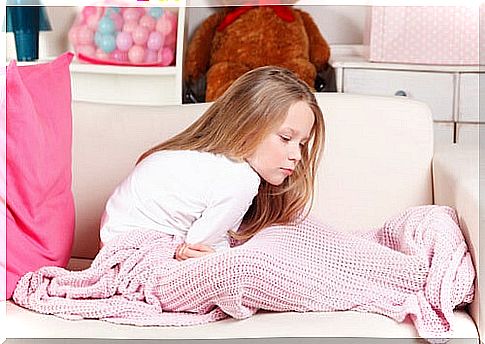
How to treat vomiting

- Regulate feeding schedules
- Make sure the child doesn’t eat more than they should for their size
- Pay attention to hand hygiene
- Sterilize objects that come into contact with the baby
- Food hygiene
- Make sure you drink enough fluids
- Never leave the child alone when vomiting
- Look out for other signs of malaise, fever, loss of appetite, pain, or diarrhea.
Why do we worry about hiccups?
Hiccups are usually temporary and almost never caused by a worrying health problem. However, if the hiccups persist for a long time, it could be a sign of neurological, gastric, or metabolic disorders.
Babies have hiccups for the same reasons as adults. However, parents still worry because the contractions of their small bodies do not seem normal and are very uncomfortable for them.
What to do if you have hiccups?
Just as strange as the appearance of hiccup , are also the countermeasures. It is impossible to say exactly which of these options will work best in which case.
We recommend the following:
- Make sure the baby doesn’t eat or drink too quickly
- Don’t put it to bed immediately after eating
- Regularly bump it up after you eat it
- Make sure you are drinking enough fluids
